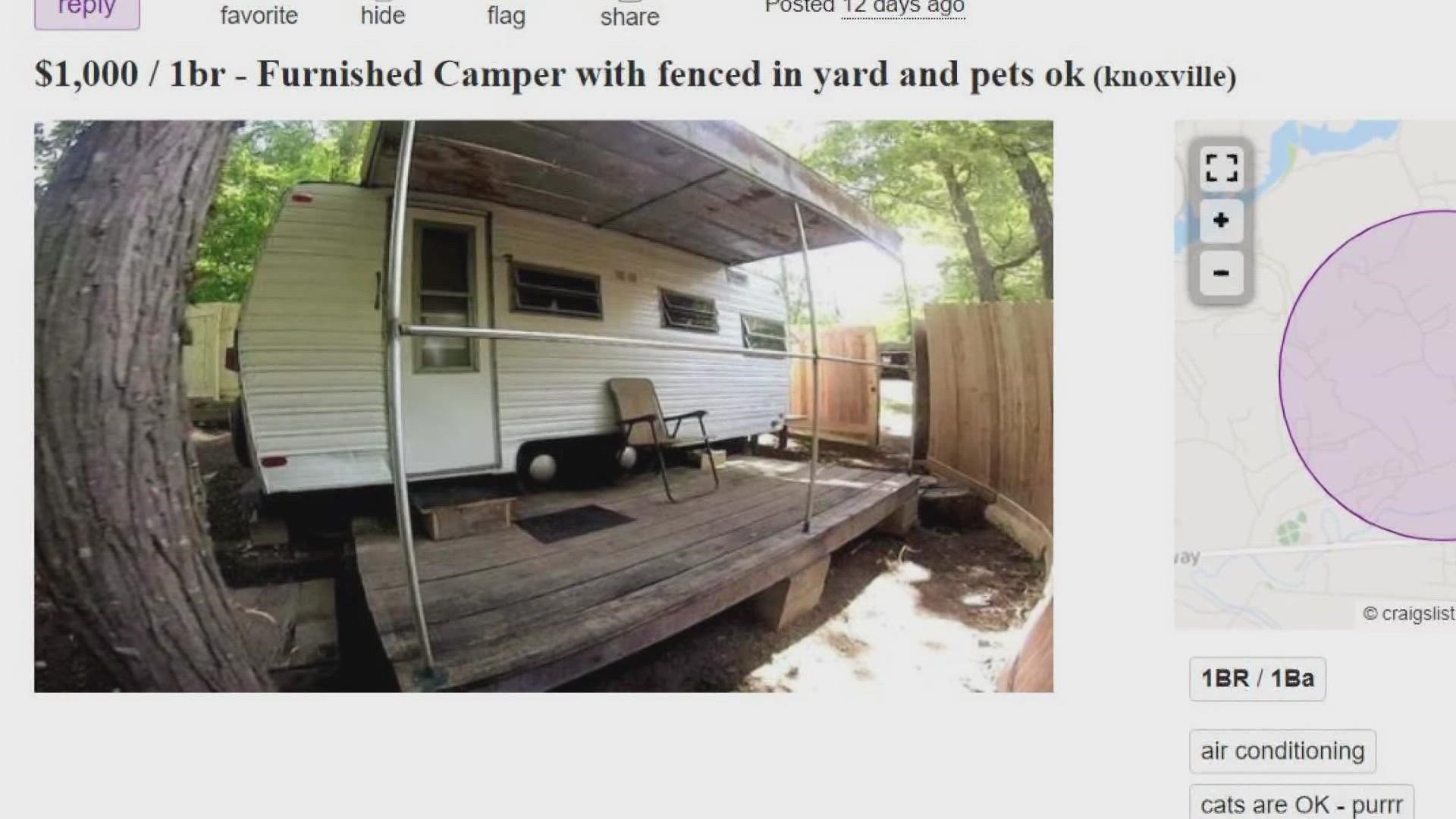KNOXVILLE, Tenn. — Knoxville is full and may not be able to house many more renters, according to a new report from the Knoxville Area Association of Realtors.
The report found that the city's occupancy rate soared to nearly 99% in the second quarter of 2022, and so people hoping to rent a home in Knoxville may not be able to find anything in their budget. As a result, the price of renting in the city has increased.
For example, Adam Newman returned to Knoxville after pursuing his career in New Orleans. He grew up in the city before moving away in 2020.
"You're basically one catastrophe away from, 'How do I afford to live?'" he said.
He returned to The Scruffy City because he wanted to settle down close to family, he said. But once he started searching for a place to live, he said he was met with rental rates out of his budget and hardly any available housing. He said he was specifically looking for places that cost around $1,000 per month and allowed dogs.
The KAAR report found that rents were around 30% higher than pre-pandemic levels across Knoxville. It also found more renters were choosing to renew their leases instead of moving away since landlords were more likely to make the price higher for new leases even if they were selling the same unit.
As a result of the tight market, more unconventional listings are popping up across Knoxville. The price for living in a camper was $1,000 per month, and a shack was recently listed at $800 per month. Both of those listings were filled in a week.
"Do human beings deserve to live in sheds and campers for $1,000 a month? I think the answer is no," said Newman.
One family renting out the campers said they renovated the campers recently. They said they started renting them for up to $400 per month in 2019. They were originally parked on their Clinton property for family and friends who were visiting.
"We're still really, really low at $800 or so," said Jim Loy, one of the property owners. "We're happy with how it's going."
He also said the family is preparing for changes to their own economic outlook too, as parcels of land around them are purchased and more neighborhoods are built around them.
"It scares us," he said. "We might end up getting pushed out of here."

